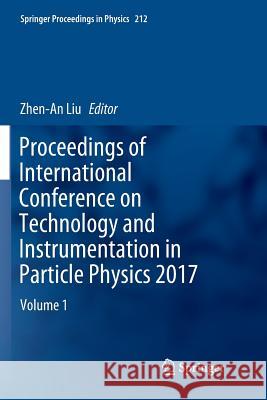Proceedings of International Conference on Technology and Instrumentation in Particle Physics 2017: Volume 1 » książka
topmenu
Proceedings of International Conference on Technology and Instrumentation in Particle Physics 2017: Volume 1
ISBN-13: 9789811346088 / Angielski / Miękka / 2018 / 442 str.
Proceedings of International Conference on Technology and Instrumentation in Particle Physics 2017: Volume 1
ISBN-13: 9789811346088 / Angielski / Miękka / 2018 / 442 str.
cena 402,53
(netto: 383,36 VAT: 5%)
Najniższa cena z 30 dni: 385,52
(netto: 383,36 VAT: 5%)
Najniższa cena z 30 dni: 385,52
Termin realizacji zamówienia:
ok. 16-18 dni roboczych.
ok. 16-18 dni roboczych.
Darmowa dostawa!
Kategorie:
Kategorie BISAC:
Wydawca:
Springer
Seria wydawnicza:
Język:
Angielski
ISBN-13:
9789811346088
Rok wydania:
2018
Dostępne języki:
Numer serii:
000383562
Ilość stron:
442
Waga:
0.63 kg
Wymiary:
23.39 x 15.6 x 2.36
Oprawa:
Miękka
Dodatkowe informacje:
Wydanie ilustrowane











